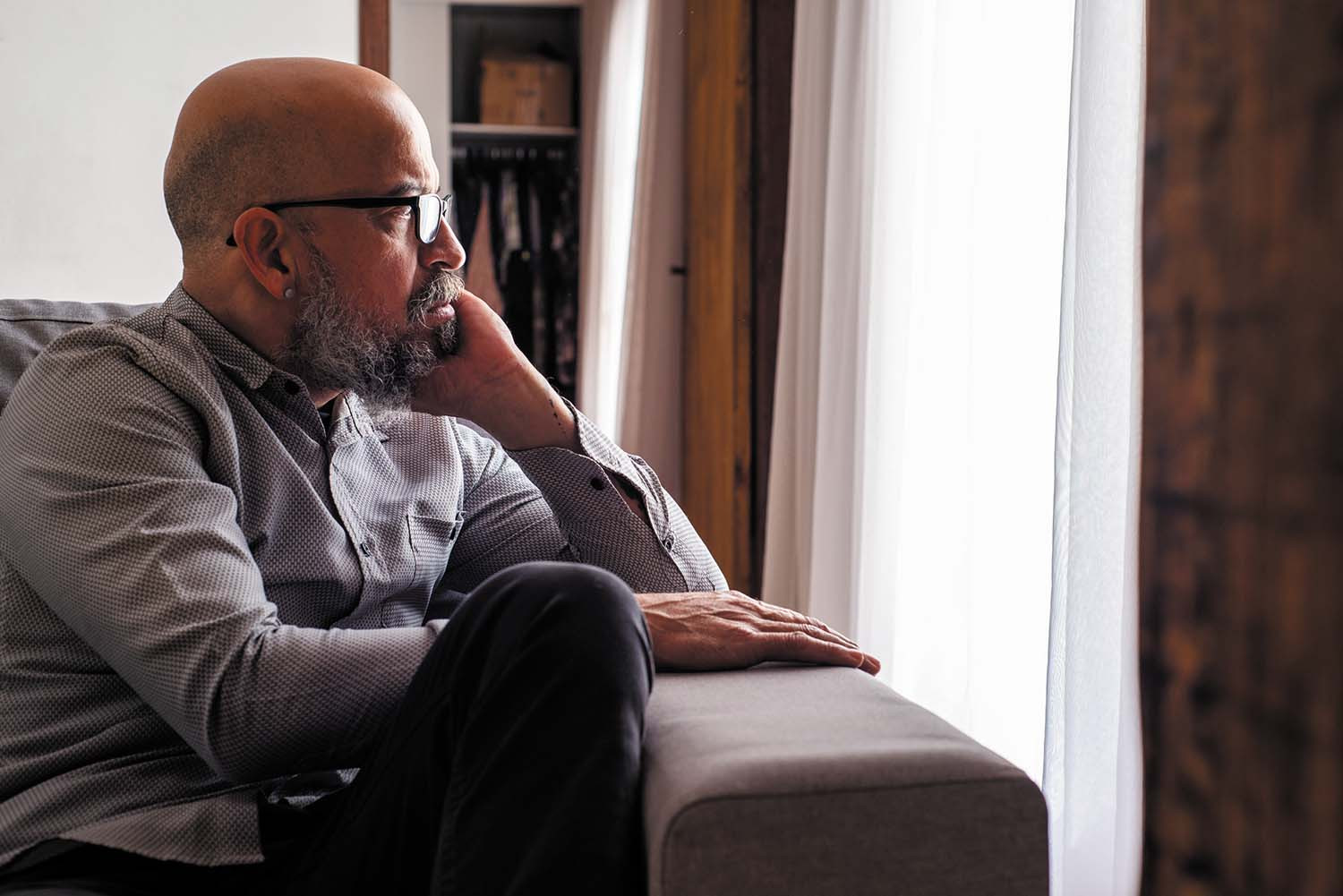How to recognize the signs of mental health issues
Men are vulnerable to depression, phobias, and alcohol use disorder. Here's what to look for so you can seek help.
- Reviewed by Howard E. LeWine, MD, Chief Medical Editor, Harvard Health Publishing; Editorial Advisory Board Member, Harvard Health Publishing

People too often don't recognize that an underlying mental health problem is why they feel unwell.
A study published in the September 2023 issue of The Lancet Psychiatry analyzed data collected over 20-plus years from more than 150,000 adults across 29 countries. The results showed that about half of people will develop at least one mental disorder by age 75. Among men, the most common disorders were depression, phobias, and alcohol use disorder.
Why may this be the case? "Older adults are vulnerable to mental disorders because they are exposed to many life-changing and traumatic events like health issues, the death of loved ones, and physical limitations," says Dr. Ronald Kessler, a professor of health care policy at Harvard Medical School and one of the study's co-leaders. "Many also don't recognize the signs of a mental disorder and thus don't seek medical help, which can make the disorder worse."
Here are the warning signs and symptoms for depression, phobias, and alcohol use disorder that men should look out for. "Men should find comfort in knowing that they are not alone when dealing with a mental disorder," says Dr. Kessler. "Effective treatments are available, so they don't have to spend their life in pain."
Depression
A depressed man may gain or lose weight, eat more or less than usual, have difficulty concentrating, and have trouble sleeping or sleep more than usual. He also may battle fatigue and low energy, so even small tasks may appear impossible to manage. Other symptoms of depression include one or more of the following:
- persistent sad or "empty" mood
- loss of enjoyment in favorite activities
- feelings of hopelessness or pessimism
- feelings of worthlessness and guilt about a specific life experience or in general
- increased boredom and apathy
- trouble concentrating or making decisions
- restlessness or irritability.
Get help. Speak with your doctor if you experience any of these symptoms most days for two weeks or longer. The doctor can refer you for counseling, prescribe an antidepressant, or both.
Phobias
A phobia is a persistent, excessive, unrealistic fear of an object, person, animal, activity, or situation. Phobias are a type of anxiety disorder.
A man with a phobia either tries to avoid the object or situation that triggers the fear or endures it with great anxiety and distress. He also may overreact to a potential threat. Some examples of common phobias are fear of heights, public places, social situations, or closed spaces.
Physical symptoms may include rapid heartbeat, shallow or rapid breathing, sweating, dizziness, upset stomach (cramps, nausea, diarrhea), headaches, and general pains. (Symptoms such as these also may lead to a diagnosis of panic disorder.) It's also common for men with an anxiety disorder to suffer from depression and struggle with low self-esteem.
Get help. The first step to dealing with a phobia is to try to identify the underlying cause and possible stressors. You may be referred to a mental health professional for evaluation and treatment. Treatment for an anxiety disorder often includes a combination of medication and psychotherapy.
Alcohol use disorder
Today many experts recommend that people limit their alcohol use to no more than a single standard drink per day. In the United States, a standard drink is approximately 12 ounces of regular beer (5% alcohol by volume, or ABV), 5 ounces of wine (12% ABV), or 1.5 ounces of 80-proof spirits (40% ABV).
Moderate drinking wanders into excessive alcohol use disorder when someone regularly drinks more than he planned and continues to drink despite the concerns of others and frequent attempts to cut down or quit. He also may indulge in binge drinking (consuming five or more drinks on one occasion).
After a man becomes dependent on alcohol, he will usually develop withdrawal symptoms such as headache, nausea and vomiting, anxiety, and fatigue if he can't get a drink.
Get help. Your doctor can help diagnose alcohol use disorder through a series of screening questions. Treatment consists of a combination of psychotherapy, and medication, and participation in self-help groups like Alcoholics Anonymous.
Image: © Kar3k4/Getty Images
About the Author

Matthew Solan, Executive Editor, Harvard Men's Health Watch
About the Reviewer

Howard E. LeWine, MD, Chief Medical Editor, Harvard Health Publishing; Editorial Advisory Board Member, Harvard Health Publishing
Disclaimer:
As a service to our readers, Harvard Health Publishing provides access to our library of archived content. Please note the date of last review or update on all articles.
No content on this site, regardless of date, should ever be used as a substitute for direct medical advice from your doctor or other qualified clinician.
















